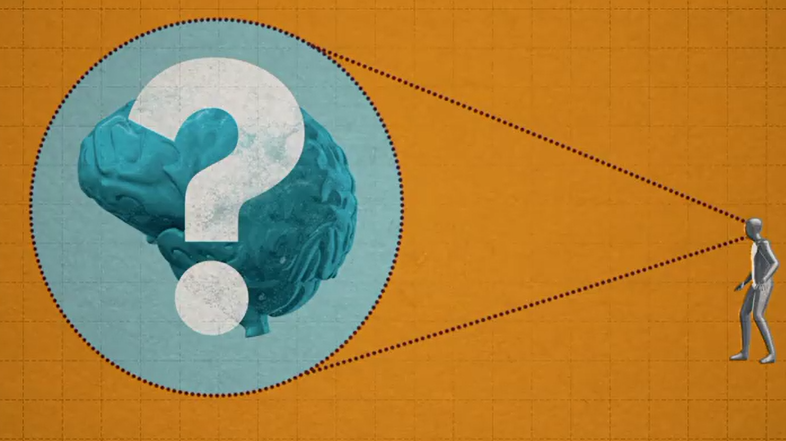If you sucked all of the moisture out of your brain and broke it down to its constituent nutritional content, what would it look like?
如果將你大腦里所有的水分都吸干,然后按不同的營(yíng)養(yǎng)成分進(jìn)行分類,會(huì)是怎樣呢?
Most of the weight of your dehydrated brain would come from fats, also known as lipids.
脫水后,大腦的重量主要來(lái)自于脂肪,也被認(rèn)為是脂質(zhì)(Lipids)。
In the remaining brain matter, you would find proteins and amino acids, traces of micronutrients, and glucose.
在剩余的物質(zhì)中,你會(huì)發(fā)現(xiàn)蛋白質(zhì)和氨基酸,微量營(yíng)養(yǎng)素,以及葡萄糖。
The brain is, of course, more than just the sum of its nutritional parts, but each component does have a distinct impact on functioning, development, mood, and energy.
當(dāng)然,大腦不僅僅是這些營(yíng)養(yǎng)物質(zhì)的簡(jiǎn)單相加,這些營(yíng)養(yǎng)物質(zhì)確實(shí)各有分工,影響著身體運(yùn)作,機(jī)能發(fā)展,情緒變化及能量消耗。
So that post-lunch apathy, or late-night alertness you might be feeling, well, that could simply be the effects of food on your brain.
我們可能都有過(guò),午飯后乏力易困或是夜幕已深我們?nèi)噪y以入眠的經(jīng)歷,這些體驗(yàn)可能是食物對(duì)大腦產(chǎn)生的影響。
Of the fats in your brain, the superstars are omegas 3 and 6.
大腦里的脂質(zhì)中,Omegas-3和Omegas-6是其中的明星成員。

These essential fatty acids, which have been linked to preventing degenerative brain conditions, must come from our diets.
這些人體必需的脂肪酸被認(rèn)為能防止腦功能退化,它們必須通過(guò)食物才能攝取。
So eating omega-rich foods, like nuts, seeds, and fatty fish, is crucial to the creation and maintenance of cell membranes.
所以,食用富含Omega脂肪酸的食物,比如堅(jiān)果,食物種子,脂質(zhì)含量較高的魚(yú)類,對(duì)細(xì)胞膜生成和維護(hù)是非常關(guān)鍵的。
And while omegas are good fats for your brain, long-term consumption of other fats, like trans and saturated fats, may compromise brain health.
Omega這類脂質(zhì)對(duì)大腦來(lái)說(shuō)是有益脂肪,但長(zhǎng)期食用其他脂質(zhì),比如反式脂肪和飽和脂肪卻可能會(huì)危害腦部健康。
Meanwhile, proteins and amino acids, the building block nutrients of growth and development, manipulate how we feel and behave.
此外,蛋白質(zhì)和氨基酸也是身體機(jī)能增長(zhǎng)和發(fā)展的基礎(chǔ)營(yíng)養(yǎng)要素,操縱著人類的感受與行為。
Amino acids contain the precursors to neurotransmitters, the chemical messengers that carry signals between neurons, affecting things like mood, sleep, attentiveness, and weight.
氨基酸含有構(gòu)成神經(jīng)遞質(zhì)的前體蛋白,神經(jīng)遞質(zhì)是神經(jīng)元之間傳遞信號(hào)的化學(xué)物質(zhì),會(huì)影響人類的情緒,睡眠,注意力,及體重。
They're one of the reasons we might feel calm after eating a large plate of pasta, or more alert after a protein-rich meal.
這就是人們?cè)诔粤艘淮蠓菀獯罄婧髸?huì)變得鎮(zhèn)定的原因之一,也是人們吃一頓富含蛋白質(zhì)的晚餐后會(huì)很精神的原因。
The complex combinations of compounds in food can stimulate brain cells to release mood-altering norepinephrine, dopamine, and serotonin.
食物中復(fù)合物的的復(fù)雜組合會(huì)刺激大腦細(xì)胞釋放影響情緒的降腎上腺素,多巴胺和血清素。
But getting to your brain cells is tricky, and amino acids have to compete for limited access.
但它們想要進(jìn)入腦部細(xì)胞并非易事,氨基酸還需搶占有限的通道以進(jìn)入腦細(xì)胞。
A diet with a range of foods helps maintain a balanced combination of brain messengers, and keeps your mood from getting skewed in one direction or the other.
飲食結(jié)構(gòu)多樣化能幫助腦部傳輸元素?cái)?shù)量平衡,相互協(xié)作,以保證你的情緒不會(huì)有偏向的波動(dòng)。



